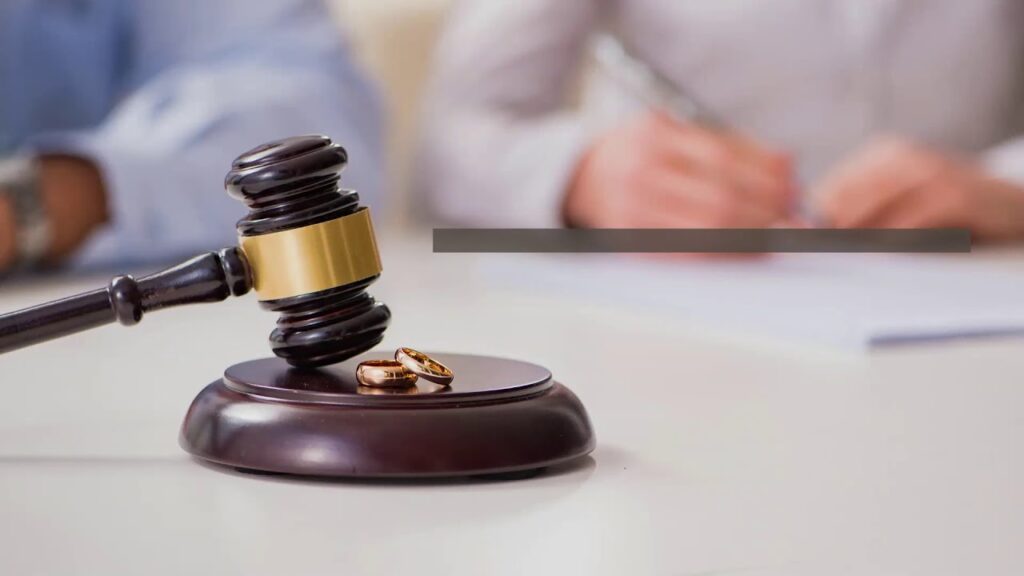Introduction
Divorce can be an emotionally and legally challenging experience for everyone involved. Whether you’ve made the difficult decision to end your marriage or you’re facing an unexpected separation, hiring an experienced divorce lawyer is one of the most important steps you can take to ensure that your rights and interests are protected. This comprehensive guide will explore the role of a divorce lawyer, how to choose the right one, and the key considerations you should keep in mind during the divorce process.
What Does a Divorce Lawyer Do?
A divorce lawyer is a legal professional who specializes in handling cases related to the dissolution of marriage. They represent individuals who are going through a divorce and provide legal advice, negotiate settlements, and advocate for their client’s best interests in court if necessary. Divorce lawyers are skilled in various areas of family law, including child custody, property division, spousal support, and more.
Here are some of the primary responsibilities of a divorce lawyer:
- Legal Advice: A divorce lawyer provides guidance on the legal aspects of the divorce, helping you understand your rights and obligations.
- Representation: They represent you in negotiations and in court, ensuring that your interests are protected.
- Document Preparation: Divorce lawyers prepare all necessary documents, including divorce petitions, settlement agreements, and court motions.
- Negotiation: A significant part of a divorce lawyer’s role is negotiating terms between the parties involved, including child custody, alimony, and asset division.
- Mediation: Some divorce lawyers specialize in mediation, helping both parties reach a mutually agreeable settlement without going to court.

When Do You Need a Divorce Lawyer?
Not all divorces require legal representation, especially when both parties agree on the terms and can settle their differences amicably. However, there are several scenarios where having a divorce lawyer is highly beneficial:
1. Contested Divorce
If you and your spouse disagree on significant issues such as child custody, property division, or spousal support, a contested divorce may be unavoidable. In such cases, a divorce lawyer is essential for ensuring that your interests are represented and that the process moves forward legally.
2. Complex Financial Situations
If your marriage involved complex financial matters, such as owning businesses, properties, or substantial assets, a divorce lawyer can help navigate the division of these assets. Lawyers also assist in evaluating the fair market value of assets and ensuring that both parties get a fair share.
3. Child Custody Disputes
Child custody and visitation rights can be one of the most contentious aspects of divorce. A divorce lawyer can guide you through the legal process and help you reach a fair custody arrangement that prioritizes the well-being of your children.
4. Spousal Support or Alimony
Determining whether spousal support should be awarded and how much it should be is often a complex legal issue. A divorce lawyer can help you understand the rules and how they apply to your situation, ensuring that you receive or pay a fair amount based on your financial circumstances.
How to Choose the Right Divorce Lawyer
Choosing the right divorce lawyer is critical to the success of your case. Here are some key factors to consider when selecting the right attorney for your divorce:
1. Experience and Specialization
It is crucial to hire a lawyer who specializes in family law and divorce. An experienced divorce lawyer will be familiar with the intricacies of divorce laws in your state and can effectively advocate for you. They should also have experience handling cases similar to yours, whether that involves complex financial assets, child custody issues, or spousal support.
2. Reputation and Reviews
Look for a lawyer with a good reputation in the legal community and among previous clients. Online reviews, testimonials, and referrals from friends or family can give you insight into the lawyer’s professionalism, approachability, and effectiveness. Consider checking with your local bar association for any disciplinary actions or complaints.
3. Communication Skills
A divorce lawyer should be able to communicate effectively with you and the other party involved in the divorce. Since divorce proceedings can be stressful and emotional, it is important to have a lawyer who listens to your concerns and explains the process clearly.
4. Approachability and Compatibility
Divorce is a deeply personal matter, so it’s essential to feel comfortable with your lawyer. Your attorney should be someone you can trust and feel at ease discussing sensitive topics with. A good lawyer should also be empathetic and compassionate, understanding the emotional aspects of the process.
5. Fees and Billing Structure
Before hiring a divorce lawyer, it is important to discuss their fees and billing structure. Divorce lawyers typically charge either an hourly rate or a flat fee for their services. Some may also offer a retainer arrangement. Make sure you understand how the lawyer charges for their time and services and whether it fits within your budget.

The Divorce Process: What to Expect
Understanding the divorce process can help you prepare for what lies ahead. While every divorce is different, the typical steps involved in a divorce include:
1. Filing the Divorce Petition
The divorce process begins with the filing of a divorce petition (also known as a divorce complaint). This document outlines the grounds for divorce and other important issues such as child custody and division of property. Your divorce lawyer will help you prepare this petition and ensure that it is filed correctly.
2. Serving Divorce Papers
Once the petition is filed, the other spouse must be formally notified of the divorce. This is known as serving divorce papers. A divorce lawyer can assist with this process and ensure that it is carried out according to the law.
3. Discovery Phase
During the discovery phase, both parties exchange information related to assets, debts, income, and other relevant details. This process helps both spouses understand each other’s financial situation and aids in negotiating a fair settlement. Divorce lawyers play an important role in gathering and reviewing financial documents.
4. Negotiation and Settlement
Most divorces are settled through negotiation rather than going to trial. Your divorce lawyer will advocate for your interests during settlement discussions, working to achieve a fair division of property, spousal support, and child custody arrangements. In some cases, mediation may be used to help resolve disputes without going to court.
5. Trial
If a settlement cannot be reached, the divorce will proceed to trial. Your divorce lawyer will represent you in court, presenting your case to the judge and arguing for your desired outcomes. Although trials can be expensive and time-consuming, some cases require court intervention to resolve complex issues.
6. Finalizing the Divorce
Once a settlement is reached or a judge rules on the case, a divorce decree is issued. This legal document finalizes the divorce and outlines the terms of the settlement, including child custody arrangements, property division, and spousal support.
Common Challenges in Divorce and How a Lawyer Can Help
1. Child Custody and Support
Child custody disputes can be emotionally draining for both parents and children. A divorce lawyer can help negotiate a fair custody agreement and ensure that your child’s best interests are prioritized. They will also assist with child support arrangements and enforcement.
2. Dividing Assets
Dividing assets during a divorce can be complex, especially if you own property, businesses, or have substantial investments. A divorce lawyer can help you assess and divide assets fairly while considering your financial future.
3. Spousal Support (Alimony)
Spousal support is another area where disputes often arise. A divorce lawyer will ensure that alimony is awarded fairly and based on your financial circumstances. They will also assist in negotiating the terms of support and ensuring timely payments.
4. Domestic Violence Issues
In cases involving domestic violence, it’s important to seek legal protection and ensure your safety. A divorce lawyer can assist with obtaining restraining orders and other legal remedies to protect you and your children.

Conclusion
Hiring the right divorce lawyer is essential for navigating the complexities of divorce and ensuring that your legal rights are protected. By considering factors such as experience, reputation, and communication style, you can find an attorney who will guide you through the process and help you achieve the best possible outcome. Whether you’re dealing with child custody issues, asset division, or alimony, a skilled divorce lawyer can provide the legal support and advocacy you need to move forward with confidence.
Remember that divorce is not only a legal process but also an emotional journey. Having a compassionate and skilled divorce lawyer by your side can make the process smoother and less stressful.
